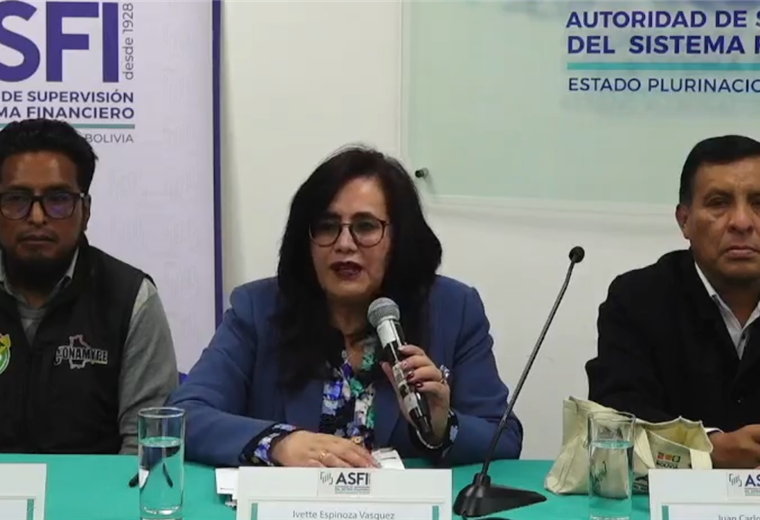October 1, 2024, 10:49 PM
October 1, 2024, 10:49 PM
The Borrowers in default in the financial system have facilities to honor their loans with reschedulingthe immobility of the risk rating and the extension of the period from 91 to 121 days to activate a judicial collection process, reported the director of the Financial System Supervision Authority (ASFI), Ivette Espinoza.
The initiatives to help defaulting borrowers were explained to the leaders of the Confederation of Bolivian Unions, Juan Carlos García, and the National Confederation of Micro and Small Businesses (Conamype), Mario Montoya, indicates the state agency ABI.
The rescheduling of credits, which include grace periods and risk rating immobility, has been in force since August 16 – through Circular/ASFI/DNP/12062/2024- and enables borrowers who for various reasons could not meet the payment of their installments to access a rescheduling according to their particular needs.
Rescheduling involves modifying any of the initial conditions under which the credit has been contracted, which is why this grace period can also be given in which different solutions can be agreed upon, such as, for example, pay less interest and more principal, or other types of measures.
Furthermore, “in order not to harm borrowers, rescheduling does not imply a change in grade of debtor to a higher risk category, which was previously done automatically, and the status of the borrower’s credit does not change either.
When the grade change is applied, from A to B, for example, The borrower is prevented from accessing credit in the future, which will not happen now.
Additionally, on Monday, September 30, the ASFI issued Resolution/ASFI/977/2024 which provides that judicial actions initiated automatically on the 91st day of not paying the debt will now be done after 121 days, with the possibility, even, of adding another 120 days.
“Before starting the judicial process, people would have 240 days to be able to solve these aspects,” Espinoza said.
According to ASFI data, Of the 57,269 reschedulings requested in the last 12 months, 28% had a lapthat is, they were not approved or responded to within the same month that they were requested.
The 57,269 reschedulings correspond in monetary terms to Bs 7,697 million as of August 2024, higher than the 4,442 reschedulings that had occurred until September 2023 for a value of Bs 624 million.
“There has been a fairly significant increase both in the issue of rescheduling and in the amount,” he explained and attributed the fact to the measures that ASFI took on for the benefit of borrowers.
















